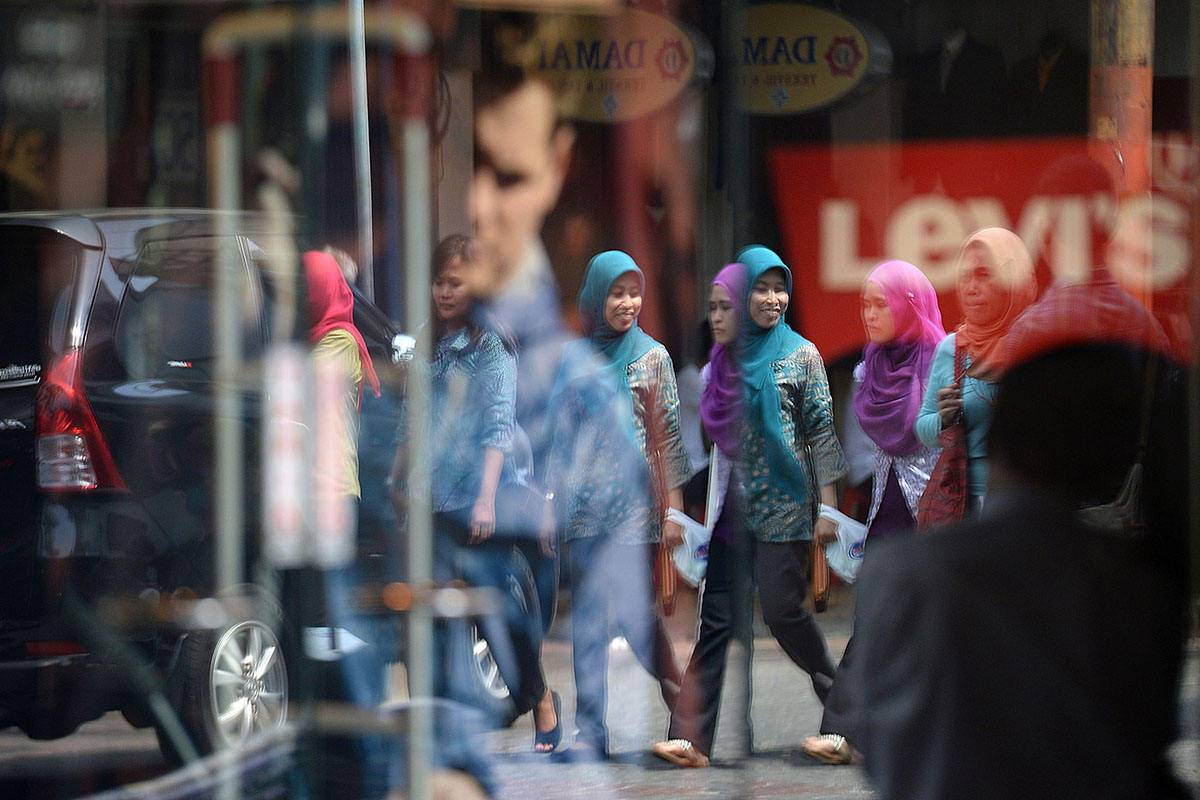Almost four million new jobs, rising wages and eight interest-rate cuts in Indonesia should have been enough to spur consumers into action in the world’s fourth most populous nation.
Instead, an increasing number of people are keeping a tight grip on their purse strings and putting their money in the bank, leaving policy makers and economists perplexed.
“All the necessary factors for supporting consumption are there,” Indonesia’s Finance Minister Sri Mulyani Indrawati said last week in Jakarta. “This is something which is puzzling.”
It’s presenting a particular dilemma for the central bank, which has already taken aggressive easing action since last year without being able to lift private consumption growth much above five percent. The door for further rate cuts is closing, as Bank Indonesia guards against currency weakness in the face of tighter US monetary policy.
Spending by consumers and businesses make up half of Indonesia’s gross domestic product, and sluggish growth is acting as a handbrake on Southeast Asia’s biggest economy.
Goldman Sachs Group sees economic growth of 5.2 percent for this year being fuelled by higher government spending, while private consumption growth and retail sales will remain relatively flat. President Joko Widodo had pledged to boost growth to seven percent when he came to office three years ago.
“The problem is not purchasing power but the confidence to buy durable goods like cars and motorcycles,” said David Sumual, chief economist at Bank Central Asia in Jakarta. “They have money, but they don’t want to spend, especially the middle-to-high income earners.”
While employment rose by 3.9 million in the year through February and average monthly wages gained 24 percent in the period, retail sales remain well below the double-digit growth rates of past years. Inflation has also been relatively benign, easing to 3.7 percent in September.
Retail Slump
Sales of household equipment, such as electronics and furniture, contracted for a fifth straight month in August, dropping eight percent from a year ago, data from the central bank show.
Despite consumer confidence near its highest level this year in September, retailers are feeling the pain. Matahari Putra Prima Tbk, one of Indonesia’s biggest retail chains, posted a loss of 170 billion rupiah (12.6 million dollars) in the first half of the year. Sales at department store operator Ramayana Lestari Sentosa Tbk fell 0.5 percent this year through July, compared to a 6.9 percent growth during the same period last year.
Dody Budi Waluyo, assistant governor at the central bank, said in an interview on October 6 that the rate cuts will take time to take effect.
“The signal is quite clear,” he said. “We want the economy running much faster."
Puzzled by the lack of spending, the finance minister ordered a team to examine consumption among various income groups, which found the problem lies among the middle class and high-income earners.
One reason for this, which some economists have alluded to, is the government’s efforts to boost tax revenue. Indonesia collected more than 11 billion dollars in penalty payments in a tax amnesty that ended this year, giving citizens a chance to declare assets previously undisclosed to tax authorities.
Since then, the government has stepped up efforts to enforce tax rules, which may be affecting consumers’ spending patterns.
Spending Patterns
Some of the actions by the tax office “looks very aggressive,” even though the agency isn’t trying to get its hands on everyone’s assets, said Anton Gunawan, chief economist at Bank Mandiri Tbk. “But that’s the impression that is really coming into the minds of people,” he said. “That may have impacted on the way people are spending.”
Higher electricity tariffs and a delay in the disbursement of bonuses for civil servants may have also hit consumers’ pockets, said Bank Central Asia’s Sumual.
It could also be that Indonesian consumers – who are, for the most part, young and internet-savvy – are changing their consumption patterns as incomes rise. People may be spending less on durable goods, like furniture, and more on lifestyle experiences, like travel.
“The millennials, they don’t really like to change clothes every day,” Indrawati, the finance minister, said. “They want to have the same T-shirt, like Steve Jobs, black. Maybe they only have two, I don’t know, but they are not buying.” – Bloomberg
